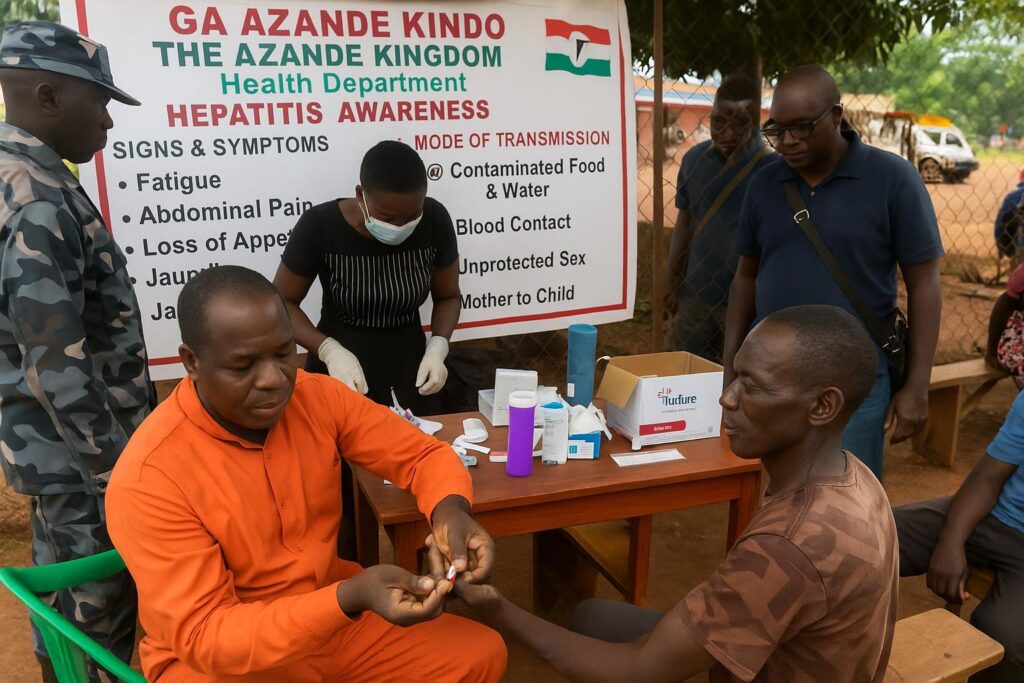Screening Drive Uncovers Hidden Burden
A four-month screening campaign at King Atoroba Peni Rikito’s royal palace tested 1,746 residents, revealing 396 hepatitis B infections, Azande Kingdom Health Minister Siro Peter David disclosed, Tuesday. Women account for 185 cases, men 161 and children 50, illustrating the virus’s broad demographic sweep (Azande Kingdom Health Department).
More than 500 individuals who tested negative received immediate vaccination, yet health workers warned that supplies are nearly depleted, limiting efforts to build herd immunity before the infection curve rises further.
Vaccine and Equipment Gaps Loom
Minister David admitted that Yambio’s referral hospital lacks antiviral drugs, viral-load analyzers and even cold-chain refrigerators, forcing families to seek costly treatment in distant Juba, hundreds of kilometers away, a journey many patients cannot finance (Radio Tamazuj interview).
He issued an urgent appeal to the national Ministry of Health and multilateral partners, stressing that daily case tallies are climbing and that delayed intervention could overwhelm local clinicians within weeks.
Regional Spread Challenges Responders
Clinical officer Zunga Doris Jackson confirmed infections have already surfaced in Ezo, Nzara and Maridi counties, but chronic fuel shortages and a paucity of testing kits hamper outreach teams trying to map the epidemic beyond Yambio.
“The population is high, yet supplies are low,” she said, urging philanthropists to fund transport, screening reagents and community education that could curb silent transmissions during market days and church gatherings.
Civil Society Pushes for Coordinated Action
Wanga Emmanuel, who heads Western Equatoria’s Civil Society Network, praised the Azande initiative as a model of grassroots leadership and challenged the health ministry, WHO and donor agencies to embed long-term hepatitis services in primary-care centers across the state.
“Hepatitis has killed quietly for years; sustained funding can change that narrative,” Emmanuel noted, recalling previous flare-ups of both B and C strains that slipped from headlines once emergency missions ended.
What Makes Hepatitis B Dangerous
Hepatitis B attacks liver cells and, if untreated, can progress to cirrhosis or cancer; however, potent antivirals suppress viral replication, allowing most patients to lead normal lives when diagnosis and monitoring start early (World Health Organization).
The virus spreads through infected blood and bodily fluids, making community vaccinations, safe injections and public awareness central pillars of prevention strategies endorsed across Africa.
Next Steps Under Consideration
Azande health officials say negotiations are under way with private laboratories to establish a temporary viral-load clinic in Yambio, while local traditional leaders plan door-to-door sensitization drives to tackle stigma that still deters many residents from testing.
Success, they insist, will hinge on timely supplies: vaccines, antivirals and diagnostic machines that convert data into informed political choices—resources they hope will arrive before the outbreak’s momentum deepens.


